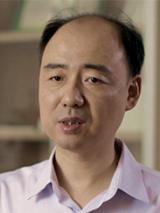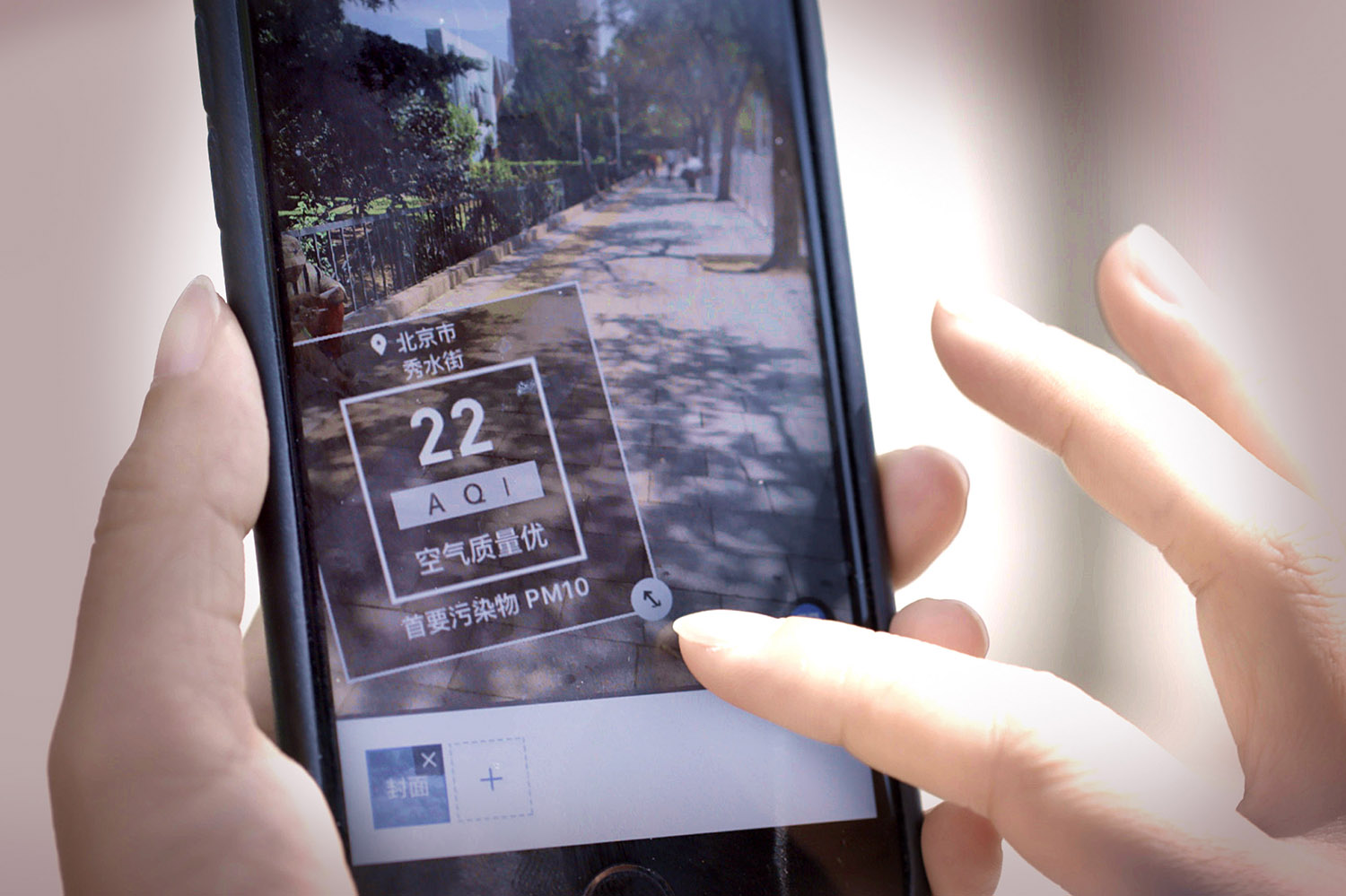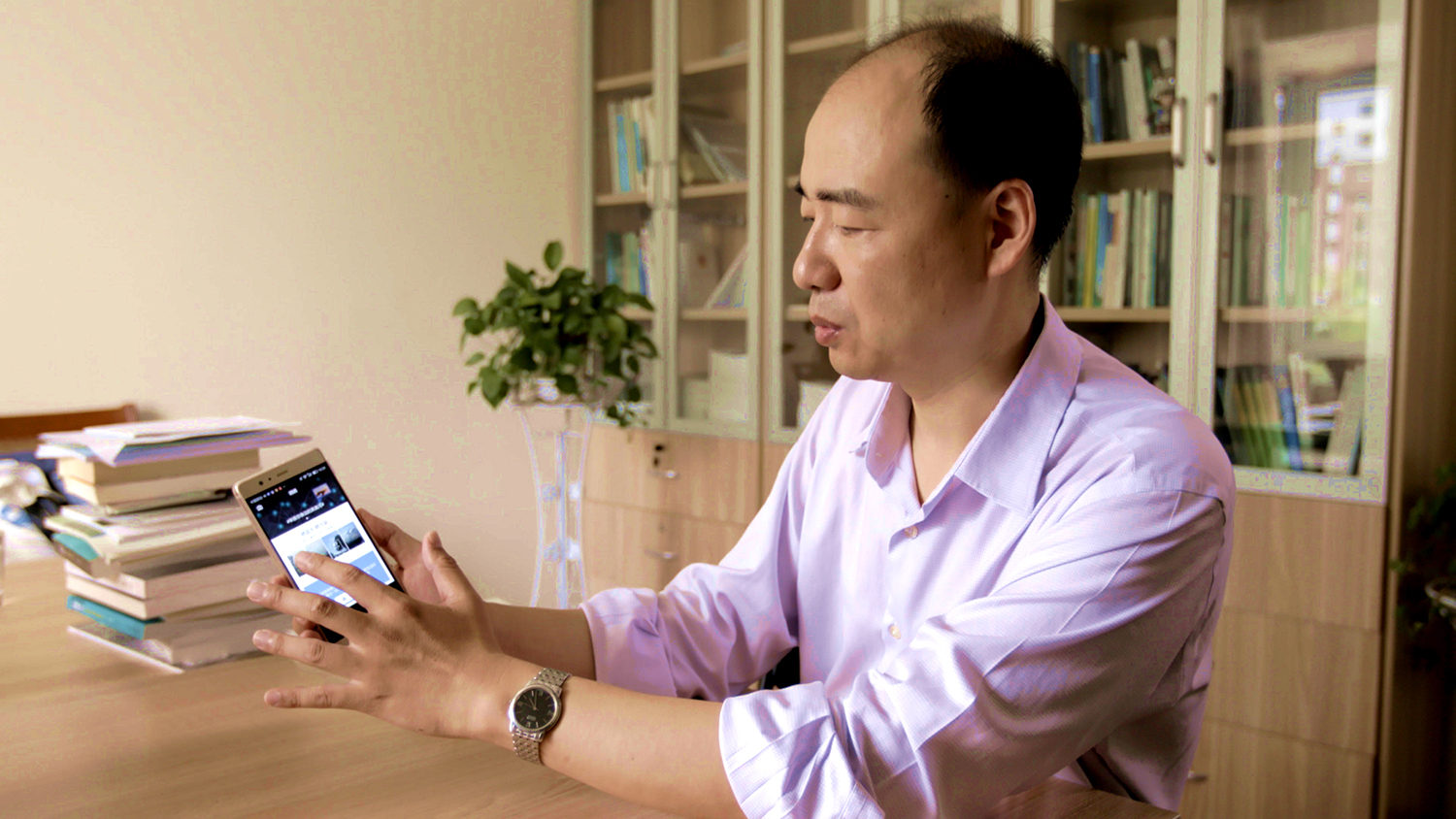
Newsletter
Sign up and stay in-the-know about The Crowd & The Cloud and the world of citizen science.


My name is Ma Jun and I am the Director of the Institute of Public & Environmental Affairs (IPE) in China.
What’s the mission of the Institute of Public & Environmental Affairs (IPE)?
Our ultimate mission is to get back blue skies and clear water for the public. To achieve that we believe we need to make sure that people can access information and get involved. We must transform our environmental decision-making process. At this moment, it’s a closed, top-down way of management, and we need to make it an open and participatory governance.
Why did you decide to develop a mobile app?
We’ve been doing this since 2006, and in 2013 we had more than 1,200 of these polluting factories come to us for help solving their problem. That’s just a drop of water in the bucket. We still have probably 140,000 records of violations and most of the factories still won’t respond. Believe me, we need to scale up our work! The way to do that is to expand transparency in a vast way. With that in mind we, along with 25 other NGOs, launched a Total Transparency Initiative calling for a disclosure of the environmental monitoring data in a comprehensive way. The most special requirement is for the real time disclosure of online monitoring data. China has been doing this for more than ten years, but only the environmental agencies can access this data, not the public. It’s very important to give people the chance to access this data.

Today is a good day in Beijing with a low count of particulate matter.
We’ve been working hard with a group of NGOs, and the government responded by enacting a bylaw which requires real time disclosure. But accessing the different government platforms on different websites is still very inconvenient for the general public. We need to take advantage of the quick development of mobile internet and try to help people access the data with a cell phone application.
We started developing an app, and in June 2014 we launched the beta version of the pollution map app, which can provide people access to hourly, quality data for more than 190 cities in China. Most importantly, it helps them access hourly monitoring data for several thousand major factories in China. These are some of the largest emitters in China. China has hundreds of thousands of factories, but 65% of industrial emission comes from 4,100 major emitters.
Access to data is not the only help that this app can provide. I think equally important is the ability to easily share records on social media through the map, and many users started doing that. When people tweet, they can tag the official account of their local environmental branch and it’s received as a petition or complaint. When that has been done repeatedly the government feels the pressure to respond and one by one major emitters started making disclosures to the public.
What roles do government and industry play with your organization?
The government is the regulator, of course, and it has the major responsibility of managing pollution control. Having said that, the government can’t do all this by itself, it also needs the help of the public. The central government is starting to change its policies and strategies, and really wants to solve the problem. But many local government officials who prioritize environmental enforcement, still get interfered with by those who try to protect polluters. In China the judicial system still needs to be improved.
It’s important to work with businesses, first of all, because much of the pollution is discharged by industrial plants. I think they could be the part of the solution. I don’t see them as morally bad, trying to pollute, I believe that it’s more about incentives to cut corners and win market opportunities. There is a chance to change that, to level the playing field, and we can’t do it by ourselves, we need to engage with business. In the beginning, we first worked with individual factories, then we worked with the brands, and now we engage with the industry. With all this engagement, I think a large number of polluting factories have been motivated to change their behavior.
How do you incentivize businesses to work with you?
The most important thing is to level the playing field, to make sure that those who don’t want to comply with the basic standards will be properly penalized. You need to have a stick. So, we created a list of polluters and they have been penalized by the government, by the environmental agencies. However, the cost of violation is so low they would rather pay fines year after year instead of solving their problem. Now, when they are on our list, they could be suspended by their buyers, and lose their contracts. That’s quite important, the investment could be affected.This puts pressure on them. In the meantime, those who try to improve will have a better chance to win the contract. Those brands who shift to green sourcing, green procurement, will appreciated by the public, especially consumers.
During the early years, we had polluting factories coming to us in a very unhappy mood, sometimes very angry, and sending threatening notices. But after all these years, we managed to convince them, one after another, to work with us. First, we have a clear environmental target: it is only about the environment, it’s not about destroying or undermining any business interest. We created a path towards solutions to make sure that no business gets stuck on the polluters list, as long as they are willing to change, to solve their problem. We also have a coalition of NGOs working together to make sure that our behavior is checked and balanced. With this we win the trust from many factories, despite their feeling somewhat inconvenienced.
Some businesses have a very valuable brand name that they want to protect, and they don’t want pollution records tarnishing their brands. Some of them are under pressure because their buyers told them they must solve their pollution problem before they can continue a business relationship. Through engagement with us, they can demonstrate to different stakeholders that they are trying to solve their problem. Of course, some businesses actually want to engage with communities and work out a solution to eventually minimize their pollution impact.
What makes your approach different from past efforts to clean up pollution?
This Institute (IPE) is probably the first one to start focusing on the issue of environmental transparency. Before us there were already NGOs set up in China creating environmental awareness, planting trees, and picking up trash. We are the first group, however, to focus on transparency as a tool to empower citizens so that they can get involved. Building on that, we developed some application tools, for example, the Green Choice program which eventually lead to a pretty large program on greening the global supply chain.
Transparency is crucial to environmental protection, not just in China but globally. Transparency in environmental data started in America in the late 1980s. There were incidents that triggered citizens in America to demand better management of toxins, and Congress passed legislation on community rights. It required polluters to disclose their data. And with that comes an inventory, a toxic release inventory, which the NGOs and citizens can tap into to drive change. It’s very inspiring, and I think in China we can also do this. We have to get the public involved.
Why does such a huge pollution problem exist in China?
First, it is the scale of industrialization and urbanization, it’s putting a lot of pressure on the environment. China has spent huge efforts trying to deal with the problem during the past ten years, the government has changed policies and strategies to integrate environmental targets into the economic development plan. However, we still haven’t seen the turning point. When we look into the issue, it’s not just a matter of technology or money, it is the lack of motivation. I believe it is the biggest barrier to successful pollution control efforts in China. We copy laws and regulation from the western countries but the enforcement remains weak. In other countries, people use the judicial system to drive enforcement, but in China environmental litigation is still extremely difficult.
Weak enforcement is not just because environmental agencies lack the capacity or experience. It is more about protection given to polluters by some local officials who still put GDP growth rate ahead of environmental protection. As a result, they interfere with the enforcement efforts of our Environmental Protection Bureaus. These deep rooted problems cannot be resolved easily. I believe that we need extensive public participation to break this barrier.
Who is to blame for pollution? Government, industry, or the public?
It is quite easy for people to play the blaming game. The obvious target is big polluting factories responsible for a major part of our air, water and heavy metal pollution. And then people often criticize local Environmental Protection Bureaus for not properly managing the environment or controlling polluting factories. Recently, more and more people understand that we as individuals also have our own contribution to this. I don’t think it’s helpful for us to get stuck in this blaming game. We have our pollution map database, a long list of polluters and information about pollution discharge. This empowers people to get involved, to help supervise pollution control efforts.

Ma Jun demonstrates the "Black & Smelly Rivers" app.
What do you want to accomplish in the next five or ten years?
I think the next five to ten years are crucial to China’s environmental protection. We’re still going through this massive industrialization and we’re talking about China now consuming half of the world’s coal. If we don’t change this current way of development, we could see our coal consumption doubled by 2040. That’s not a future for China, that’s not a future for the world. When we look at this issue, we believe that extensive public participation and a multi-stakeholder approach is needed. We need a transformation of the decision-making process, and environmental governance is needed. To achieve that, over the next five years, we have a transparency target; total transparency of environmental quality data.
The next target is to “green” the supply chain, and expand that to many other industries. So far, we have engaged 147 brands and have been successful with 100 of them. There’s still much to be done in getting all of them started on their green supply chain program. The final goal is increased “green” investment, trying to make sure that major investors start looking into responsible investment. I think this is going to become a massive motivation to help bring change to some of the energy and raw material companies.
What’s challenging about your job? What’s rewarding?
The NGO is still a new phenomena in our country, we don’t have a long history of public participation, and transparency is also a new concept. We need to find a way to bridge this pretty major gap of distrust, especially with some of the key stakeholders, like government and business. It needs to be managed in a sustainable way, and that’s our challenge.
All those years I spent working by myself collecting data and records of violations, give me peace. I really feel sad about all this environmental damage and its impact on local communities. I feel powerless, and even with all this information I can’t do much. I feel I really cannot live up to people’s trust and expectations. But over the years I’ve learned that with every record put into our database, if we can get one factory to respond, to change behavior, we’re helping the environment and local communities. The most rewarding thing is to have our data motivate factories to control and reduce their pollution.
Ideally, what kind of world are you seeking to create with your work?
I want a world which is clean, beautiful, and prosperous. We want to see this generation of Chinese have their basic health standards guaranteed. What kind of world will we leave for our children, for future generations, if we continue to discharge all these toxins and heavy metals into our environment? We inherited this land from our ancestors, and I want to make sure that in the very least, we leave our children with habitable land. Our dream is rather simple, but it’s challenging to do.
